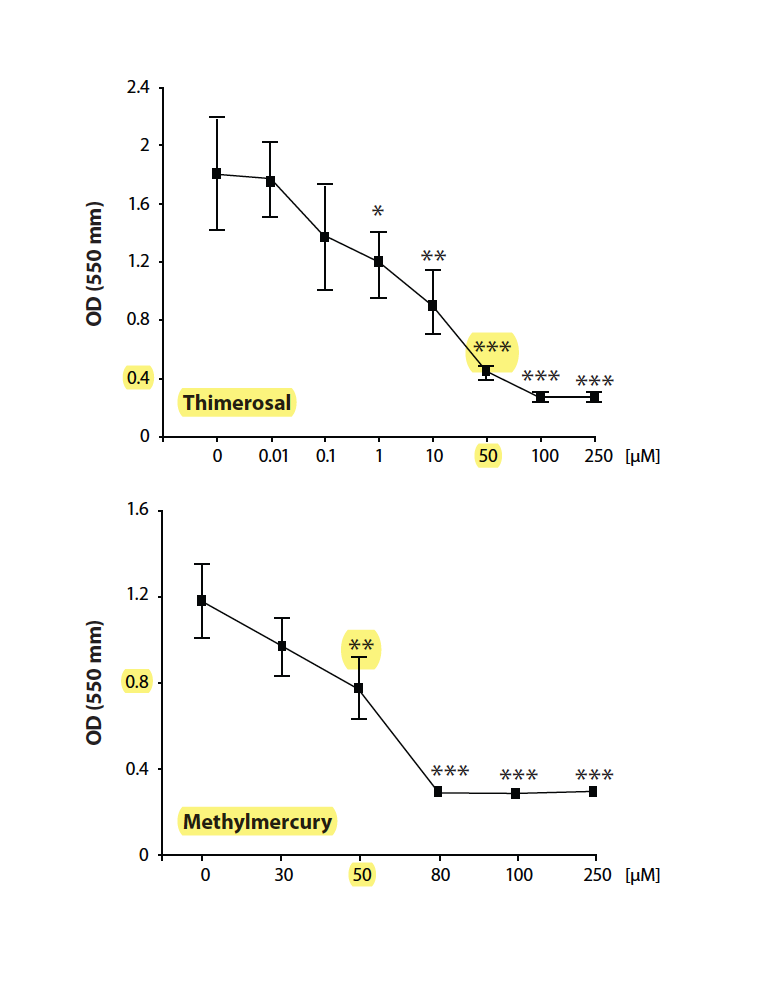Mercury is a ubiquitous environmental toxicant that causes a wide range of adverse health effects in humans.
Three forms of mercury exist: elemental, inorganic and organic. Each of them has its own profile of toxicity.
The aim of the present study was to determine the effect of thimerosal, a topical antiseptic and preservative in vaccines routinely given to children, methyl mercury, and mercuric chloride on cellular viability…
The toxicity of mercury is complex and depends on the form of mercury, route of entry, dosage, and age at exposure.
Thimerosal (as sodium ethylmercuric thiosalicylate) contains 49.6% mercury by weight and is metabolized to ethyl mercury and thiosalicylate.
Massive overdoses from inappropriate use of products containing thimerosal have resulted in toxic effects.
We exposed… cells to thimerosal, methyl mercury and mercuric chloride… for 48 hours. Upon exposure to thimerosal, methyl mercury and mercuric chloride (HgCl2), the viability of cells was measured…
[T]reatment of… cells with thimerosal caused a significant decrease in cellular viability at 1μM.
Methyl mercury exhibited a significant decrease in cellular viability at 50μM.
Mercury is ubiquitous in the environment and exposure occurs from the use of mercury-containing dental amalgam, vaccine preservatives, and ingestion of fish containing high levels of methyl mercury.
Considerable concern has been expressed recently over the cumulative dose of ethyl mercury given to children through routine immunizations.
Our findings demonstrate that thimerosal at the concentration usually found in vaccines, affects significantly cellular viability.
[T]he form of mercury that accumulates in the food chain is methyl mercury. Some people may be exposed to higher levels of mercury in the form of methyl mercury if they have a diet high in fish, shellfish, or marine mammals that come from mercury-contaminated waters.
